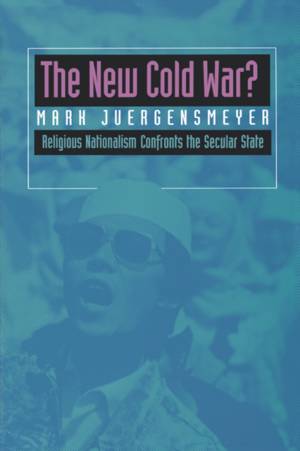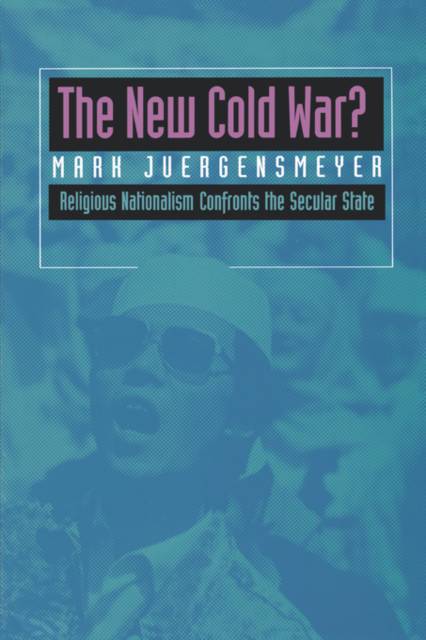
Bedankt voor het vertrouwen het afgelopen jaar! Om jou te bedanken bieden we GRATIS verzending (in België) aan op alles gedurende de hele maand januari.
- Afhalen na 1 uur in een winkel met voorraad
- In januari gratis thuislevering in België
- Ruim aanbod met 7 miljoen producten
Bedankt voor het vertrouwen het afgelopen jaar! Om jou te bedanken bieden we GRATIS verzending (in België) aan op alles gedurende de hele maand januari.
- Afhalen na 1 uur in een winkel met voorraad
- In januari gratis thuislevering in België
- Ruim aanbod met 7 miljoen producten
Zoeken
€ 54,45
+ 108 punten
Omschrijving
Will the religious confrontations with secular authorities around the world lead to a new Cold War? Mark Juergensmeyer paints a provocative picture of the new religious revolutionaries altering the political landscape in the Middle East, South Asia, Central Asia, and Eastern Europe. Impassioned Muslim leaders in Egypt, Palestine, and Algeria, political rabbis in Israel, militant Sikhs in India, and triumphant Catholic clergy in Eastern Europe are all players in Juergensmeyer's study of the explosive growth of religious movements that decisively reject Western ideas of secular nationalism.
Juergensmeyer revises our notions of religious revolutions. Instead of viewing religious nationalists as wild-eyed, anti-American fanatics, he reveals them as modern activists pursuing a legitimate form of politics. He explores the positive role religion can play in the political life of modern nations, even while acknowledging some religious nationalists' proclivity to violence and disregard of Western notions of human rights. Finally, he situates the growth of religious nationalism in the context of the political malaise of the modern West. Noting that the synthesis of traditional religion and secular nationalism yields a religious version of the modern nation-state, Juergensmeyer claims that such a political entity could conceivably embrace democratic values and human rights.
Juergensmeyer revises our notions of religious revolutions. Instead of viewing religious nationalists as wild-eyed, anti-American fanatics, he reveals them as modern activists pursuing a legitimate form of politics. He explores the positive role religion can play in the political life of modern nations, even while acknowledging some religious nationalists' proclivity to violence and disregard of Western notions of human rights. Finally, he situates the growth of religious nationalism in the context of the political malaise of the modern West. Noting that the synthesis of traditional religion and secular nationalism yields a religious version of the modern nation-state, Juergensmeyer claims that such a political entity could conceivably embrace democratic values and human rights.
Specificaties
Betrokkenen
- Auteur(s):
- Uitgeverij:
Inhoud
- Aantal bladzijden:
- 292
- Taal:
- Engels
- Reeks:
- Reeksnummer:
- nr. 5
Eigenschappen
- Productcode (EAN):
- 9780520086517
- Verschijningsdatum:
- 10/05/1993
- Uitvoering:
- Paperback
- Formaat:
- Trade paperback (VS)
- Afmetingen:
- 153 mm x 226 mm
- Gewicht:
- 417 g

Alleen bij Standaard Boekhandel
+ 108 punten op je klantenkaart van Standaard Boekhandel
Beoordelingen
We publiceren alleen reviews die voldoen aan de voorwaarden voor reviews. Bekijk onze voorwaarden voor reviews.









